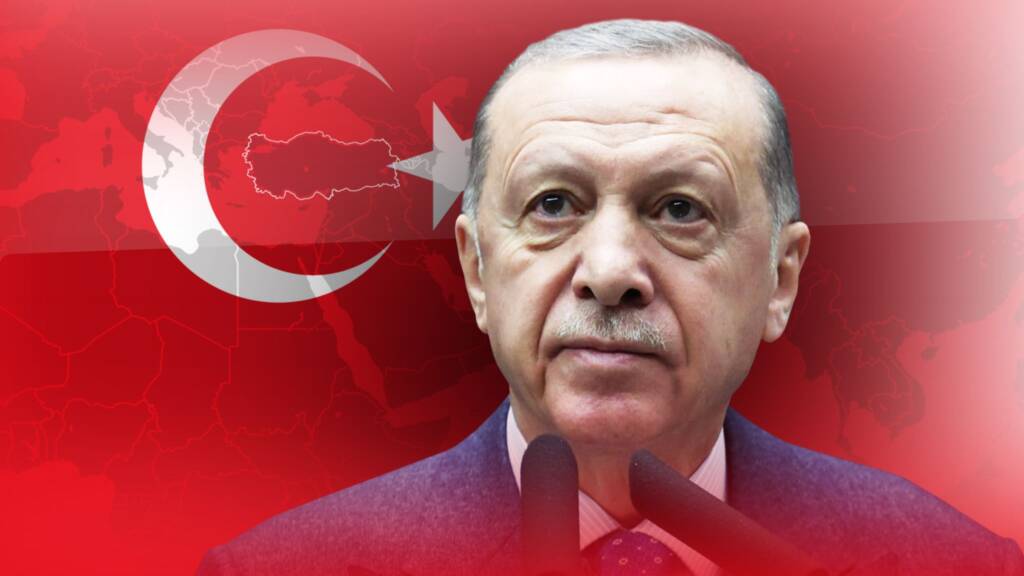Germany is witnessing the emergence of a new political entity named the Democratic Alliance for Diversity and Awakening (DAVA), described by the media outlet Bild as an extension of Justice and Development Party (AKP) of the Turkish President Recep Tayyip Erdogan. According to Bild’s report, this affiliated organization of AKP is set to participate in the upcoming June election for the European Parliament.
The establishment of DAVA comes in the wake of President Erdogan’s expressed dissatisfaction in July regarding Turkey’s prolonged EU accession process, which commenced with an official application in 1987. The report highlights the linkage between AKP and DAVA, positioning the latter as a political force in Germany aligned with President Erdogan’s party.
Join us on Telegram: https://t.me/tfiglobal
This development is set against the backdrop of strained relations between Turkey and Western nations. This tension escalated in the previous year, prompted by instances of Quran-burning orchestrated by European right-wing activists. Notably, one of these incidents occurred outside the Turkish consulate in Stockholm. In response, President Erdogan called upon European authorities to take decisive measures against those deemed responsible for the provocative acts.
Last Tuesday, Teyfik Oezcan, the chair of the Democratic Alliance for Diversity and Awakening (DAVA), utilized a Facebook post to announce the party’s establishment. In this communication, Oezcan articulated DAVA’s self-presentation as a novel political homeland catering to citizens currently not adequately represented by established political entities.
Oezcan further expressed concern, lamenting the impact of “nationalism [and] anti-Muslim racism” on individuals with foreign roots. He highlighted a perceived situation where such individuals encounter challenges in being acknowledged as “full-value members of European society.” Oezcan supported this assertion by citing instances of discrimination in various aspects of daily life, including apartment searches, job applications, and interactions with civil servants.
Read More: After next Election, Germany can quit the EU
This declaration by DAVA’s chair provides insight into the party’s foundational principles and objectives. The emphasis on inclusivity and addressing issues related to discrimination aligns with DAVA’s positioning as an alternative political entity, appealing to those who may feel marginalized within the existing government.
In his written statement, Oezcan, advocated for a practical and ideology-free approach to refugee policies. He stressed on the existing labor shortage in Germany, asserting the necessity of addressing this deficit, which involves adopting a pragmatic stance on refugee matters.
Furthermore, Oezcan disclosed DAVA’s intentions to participate in the forthcoming European Parliament election scheduled for this summer. Additionally, he unveiled the names of the party’s candidates, providing a glimpse into DAVA’s aspirations for political engagement on the European stage.
In a separate analysis, Bild estimated the current count of Muslim German citizens with voting rights at 2.5 million. There is the potential for an additional 2.5 million individuals of similar background to gain voting rights this year, citing amendments to Germany’s citizenship law as the basis for this projection.
It is speculated that the Democratic Alliance for Diversity and Awakening (DAVA) may find a promising voter base, particularly among the estimated 2.5 million Muslim German citizens with voting rights.
Emphasizing the context of Turkish diaspora in Germany, the report highlights President Erdogan’s substantial popularity among this demographic. Notably, 67% of the Turkish diaspora in Germany voted for Erdogan in the last Turkish presidential election held in May.
Read More: In the next 10 yrs. both Germany and France can LEAVE the EU
As Germany approaches its imminent elections, it is evident Chancellor Olaf Scholz is grappling with a decline in popularity. The prevailing sentiment among the German public appears to be shifting towards the Alternative for Germany (AfD) party, recognized for its Euro-skeptic stance. The likelihood of Chancellor Scholz securing victory seems diminished.
And now, a noteworthy development is the emergence of the ‘Erdogan party’ – in Germany. The timing of this launch aligns with the political landscape marked by a growing shift towards Euro-skeptic sentiments.
The AfD’s rise, fueled by its Euroscepticism, appears to set the stage for Erdogan to tap into an even stronger voter base with the potential ascendancy of Recep Tayyip Erdogan as the next chancellor of Germany.
